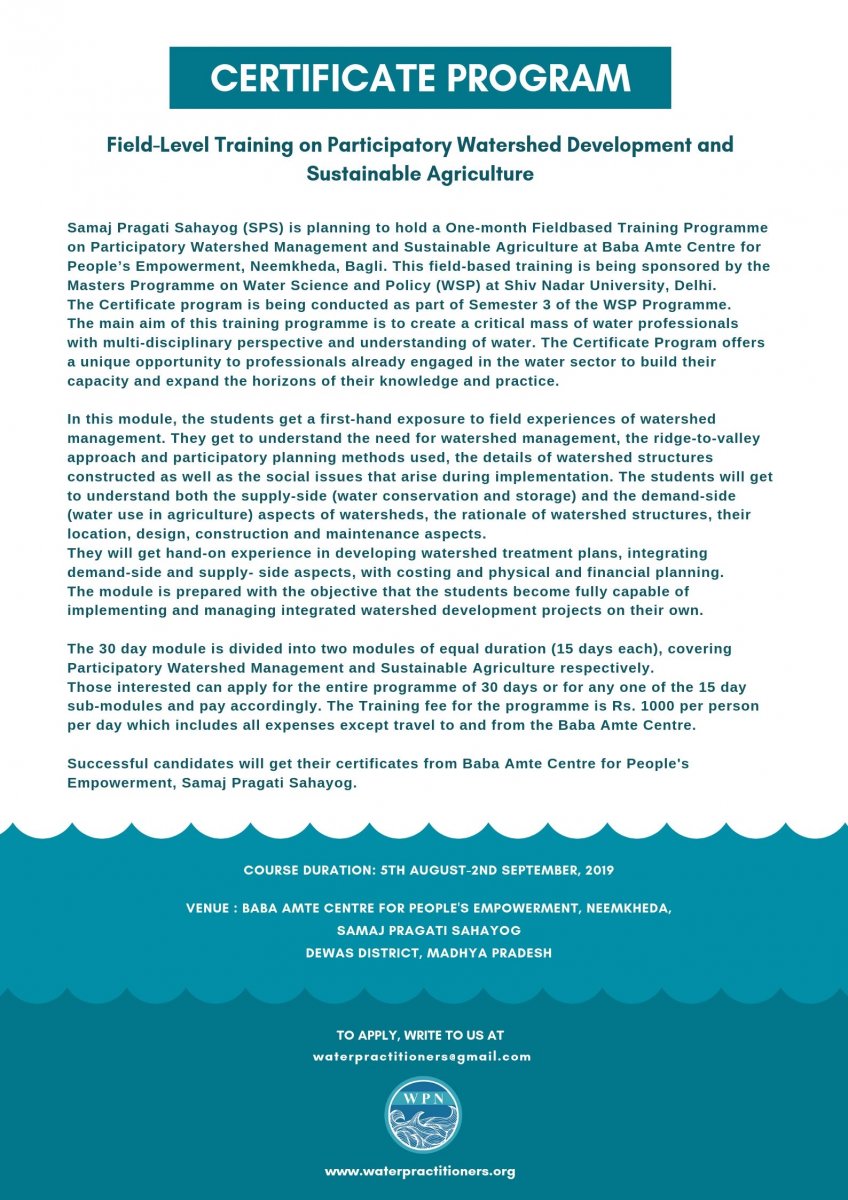/topics/rainfed-agriculture
Rainfed Agriculture
Is the Jalayukt Shivar Abhiyan just a quick fix to manage droughts?
Posted on 02 Aug, 2019 10:29 AMMaharashtra is reeling under drought this year too, with the situation in Marathwada particularly bad.

How do farmers perceive soil erosion?
Posted on 01 Aug, 2019 03:24 PMRegionally and globally, soil erosion is a major contributor to total land degradation.

Meghalaya draft water policy, Inter-State River Water Disputes (Amendment) Bill both get approval
Posted on 16 Jul, 2019 10:34 PMMeghalaya's draft water policy gets approval

Certificate Programme by Samaj Pragati Sahayog (SPS)
Posted on 16 Jul, 2019 12:37 PM
To apply for this programme, write to waterpractitioners@gmail.com
Budget 2019 talks big on water
Posted on 10 Jul, 2019 02:04 PMNirmala Sitharaman, Finance Minister alluded to gaon, garib and kisan as the centre of all policies of this government, while announcing a clutch of schemes aimed at the rural and urban poor.

Cultivating more millets to make food production climate resilient in India
Posted on 09 Jul, 2019 02:32 PMCrop production is highly influenced by the sensitivity of crops to variations in climate and can have major implications for food supply and rural livelihoods. The effects of climate change are increasing in India, where extreme rainfall events have become more frequent and spatially more variable.

How millets can make India’s food basket climate-resilient
Posted on 02 Jul, 2019 03:38 PMNew Delhi, July 1 (India Science Wire): Increasing temperatures, changing monsoon and more frequent extreme climate events are posing a threat to food security in India.

Digging deeper to cope with droughts
Posted on 01 Jul, 2019 09:14 PMIndia is witnessing the second driest pre-monsoon season in the last 65 years. As the country eagerly eyes the monsoon clouds, the delay so far has now widened the rain deficit to 43%.

Women hold the key to water for food security and nutrition
Posted on 01 Jul, 2019 12:34 PMThe water sector remains male dominated at different scales, from engineers and technocrats responsible for designing irrigation systems, to upper caste and upper class men who decide on the location of canals, borewells, tanks, and other water systems at the grassroots level.

Economics of land degradation: India’s new environment targets
Posted on 28 Jun, 2019 09:38 AMManaging natural resources, the sustainable way





